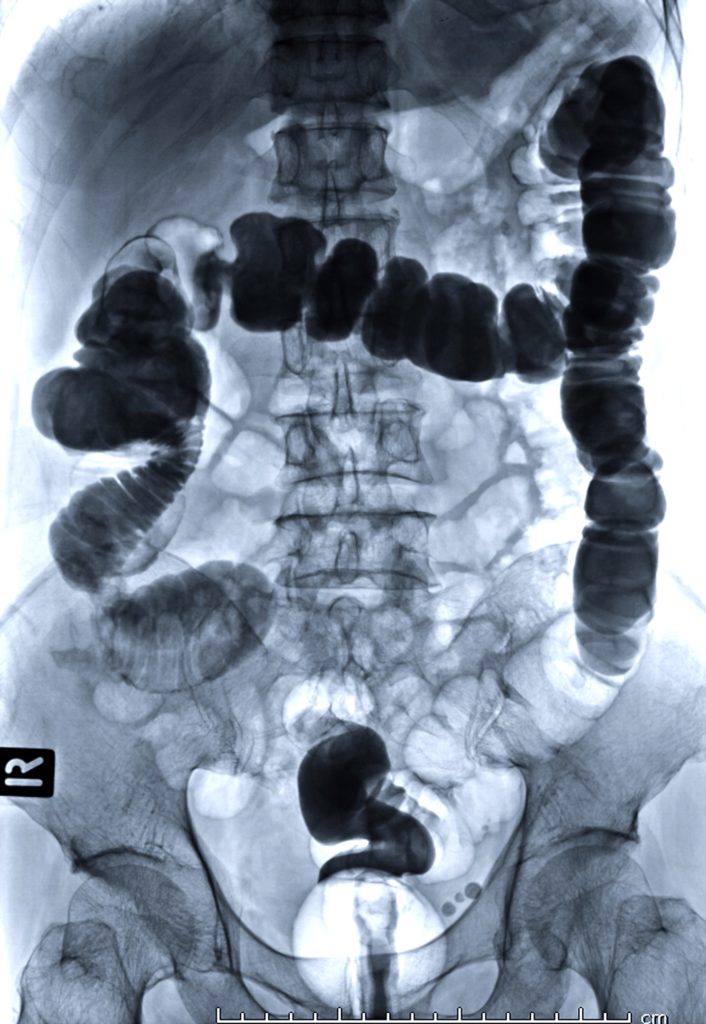Computed Tomography, also called a CT or “CAT scan,” is an accurate, noninvasive diagnostic test in which a series of exceptionally thin (5mm) images are taken of internal organs, soft tissues and blood vessels. CT’s ability to capture fine details makes it especially helpful when examining organs in the abdominal region, including the liver, kidneys, upper areas of the small and large intestines, pancreas, stomach, adrenal glands and spleen, and the pelvis, which houses the lower small and large intestines, bladder, sigmoid colon and prostate gland in men.
Doctors refer patients to have an abdominal or pelvic CT in order to discover the presence, location and severity of a variety of diseases and disorders. “Some of the most common issues are infection, kidney stones, inflammatory bowel disease, abdominal abscesses and certain cancers,” says radiologist Dr. John Cain. “CT is also used to detect specific vascular disorders, which, when caught and treated in time, may prevent serious problems like stroke and kidney failure.” When disease is present, CT is often used to assist in guided biopsy, avoiding the risks associated with exploratory surgery.
CT is a quick, outpatient test, usually taking only 5-10 minutes. In certain cases, contrast material may be needed, but even then the test typically takes only 20-30 minutes, so you’re in and out in no time. The test itself is easy. You simply lie still on a table while the CT scanner passes over the area being studied and captures a series of images, which are sent to a computer for your radiologist to examine.
“Our technologists are nationally registered, licensed by the state and rigorously trained in advanced CT technology,” says radiologist Dr. Caleb Rivera. “Our Board Certified radiologists examine all results in-house, meaning we never send images out for someone else to interpret. Patients remain within our care from beginning to end, and we consult directly with referring doctors when making a diagnosis.”
“CT imaging is painless and super fast,” says radiologist Dr. John Scales. “It produces images so rapidly that it can be used to discover internal injuries, aneurysms and bleeding quickly enough to save lives. It is enormously useful in helping us diagnose and prevent the worsening of a wide variety of problems.”
RAO offers CT scanning with a doctor’s referral at its Medical Imaging Center and TimberRidge Imaging Center.


